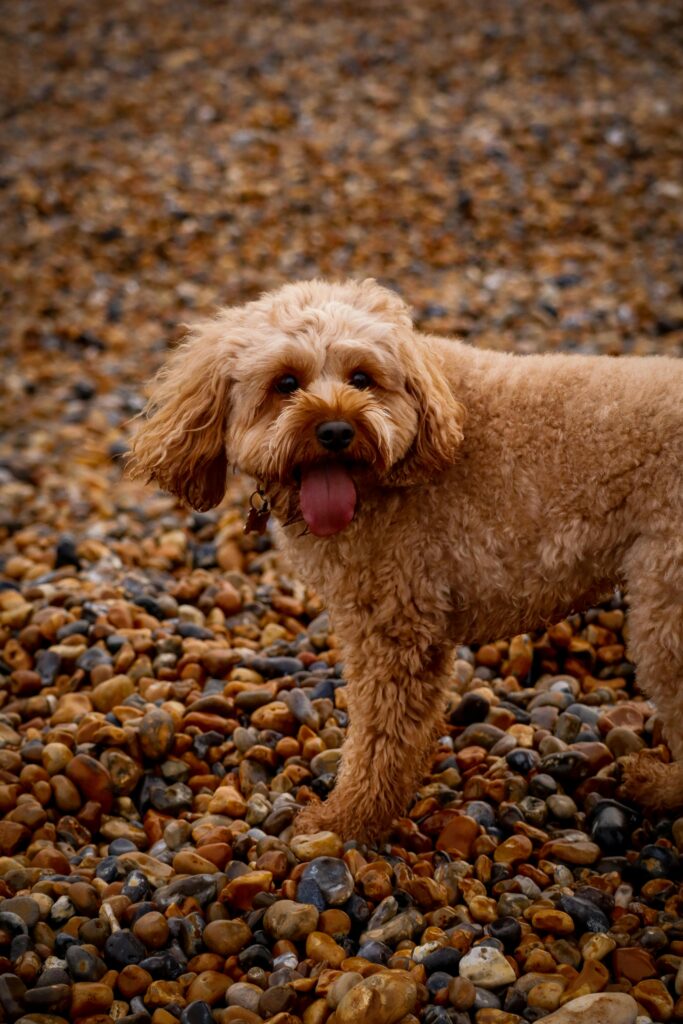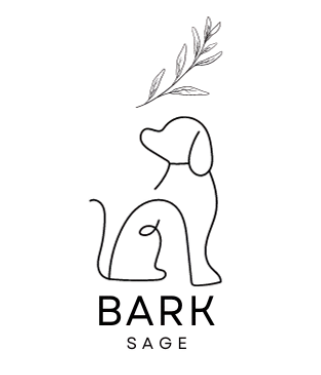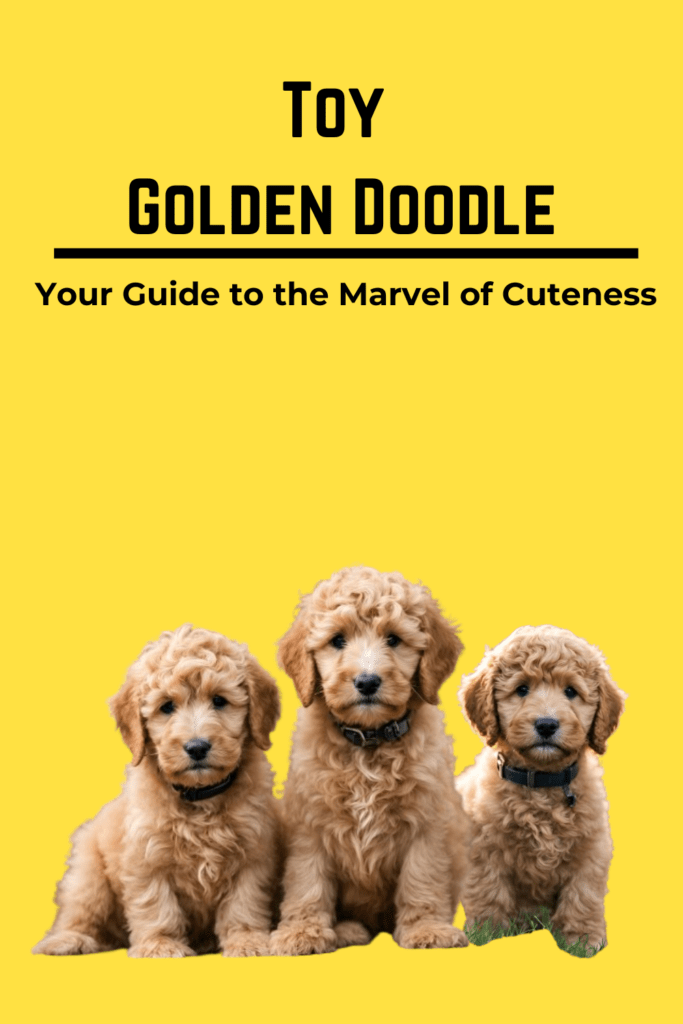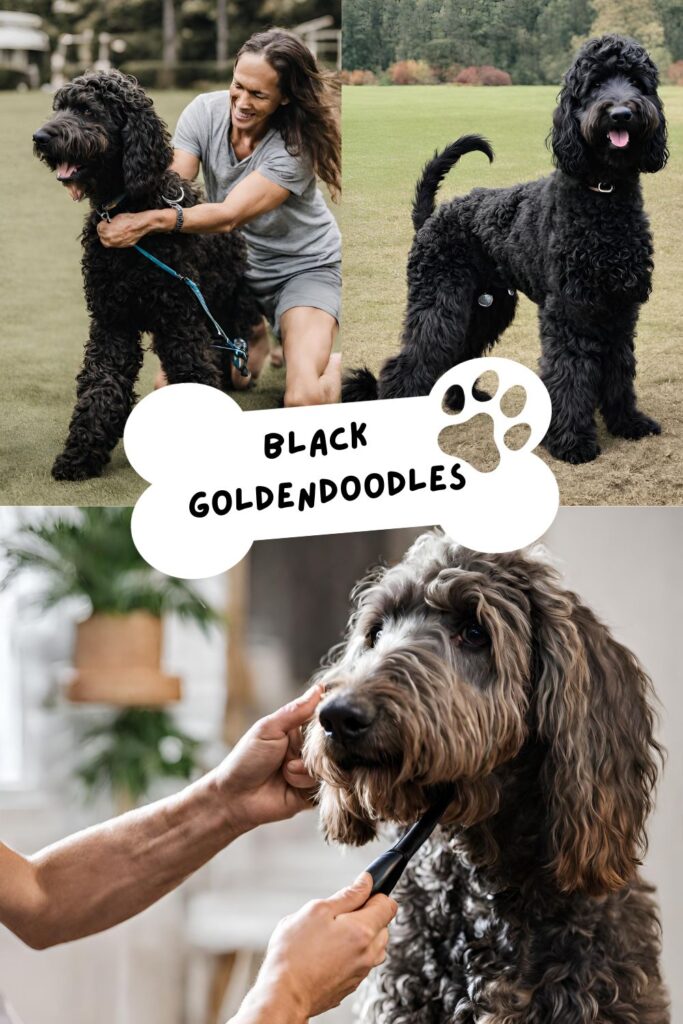Introduction
In this comprehensive guide, we’ll explore Toy Goldendoodles, from their origins and appearance to care, health considerations, and frequently asked questions. Get ready as we breakdown everything you need to know about toy goldendoodles

Things to know about Toy Goldendoodles
The Toy Goldendoodles are a crossbreed between a Toy Poodle and a Golden Retriever. They are a smaller version of the standard Goldendoodle, which is a popular designer dog breed known for its friendly nature and hypoallergenic coat.
Toy Goldendoodles are typically bred to be even smaller, usually weighing between 10 to 20 pounds and standing about 12 to 14 inches tall at the shoulder. They inherit the intelligence and friendly disposition of both parent breeds, making them great companions for families and individuals alike.
One of the key attractions of Toy Goldendoodles is their hypoallergenic coat, which sheds minimally. This can be beneficial for individuals with allergies, as it reduces the likelihood of triggering allergic reactions. Additionally, they are known for their affectionate nature and adapt well to various living situations.
It’s important to note that the appearance and characteristics of individual Toy Goldendoodles can vary, as with any mixed breed. Regular grooming and exercise are typically required to keep them healthy and happy. If you are considering getting a Toy Goldendoodle, it’s advisable to choose a reputable breeder and spend time researching the needs and characteristics of both Poodles and Golden Retrievers.
How Are Toy Goldendoodles Made?
Toy Goldendoodles are a hybrid dog breed that is a cross between a Golden Retriever and a Toy or Miniature Poodle. The breeding process involves selecting a Toy or Miniature Poodle as one parent and a Golden Retriever as the other. The goal is to combine the desirable traits of both breeds, such as the friendly and gentle nature of the Golden Retriever with the intelligence and hypoallergenic coat of the Poodle.
Here’s a general overview of the process:
1. Selection of Parent Dogs: Responsible breeders choose healthy and temperamentally sound Toy or Miniature Poodles and Golden Retrievers as the parent dogs. This helps ensure that the offspring will have positive characteristics from both breeds.
2. Mating: The selected Poodle and Golden Retriever are then bred together. Since Toy Goldendoodles are smaller in size, a Toy or Miniature Poodle is usually chosen to produce the desired size in the offspring.
3. Genetic Variation: The genetic makeup of each parent contributes to the characteristics of the Toy Goldendoodle puppies. The resulting litter may vary in appearance, coat type, and temperament.
4. Care and Socialization: Responsible breeders provide proper care for the pregnant dog and the puppies. Early socialization is crucial to help the puppies develop into well-adjusted and friendly pets.
5. Rehoming: Once the puppies are old enough, responsible breeders find suitable homes for them. They may assess the needs and preferences of potential owners to match the right puppy with the right family.
It’s important to note that ethical breeding practices prioritize the health and well-being of the dogs involved. Reputable breeders follow guidelines to ensure the health, temperament, and overall quality of the Toy Goldendoodle puppies. Always choose a responsible breeder or consider adopting from a rescue or shelter if you’re interested in bringing a Toy Goldendoodle into your family.
What Do Toy Goldendoodles Look Like?

Toy Goldendoodles are a smaller version of the standard Goldendoodle, which is a crossbreed between a Golden Retriever and a Poodle. They are known for their friendly and affectionate nature.
Toy Goldendoodles have a compact and sturdy build with a curly or wavy coat that can range in color from cream and gold to apricot and red. Their coat is often low-shedding, making them a popular choice for people with allergies.
These dogs have expressive eyes, a black nose, and floppy ears. The size of Toy Goldendoodles can vary, but they are generally smaller than standard Goldendoodles. They are bred to be a smaller, more manageable size while maintaining the friendly and social characteristics of the larger breed.
It’s important to note that individual Toy Goldendoodles may vary in appearance based on factors such as genetics and the specific traits inherited from their parent breeds.
How Big Does a Toy Goldendoodle Get?
A Toy Goldendoodle is a smaller version of the standard Goldendoodle, which is a crossbreed between a Golden Retriever and a Poodle.
The size of a Toy Goldendoodle can vary depending on factors like the size of the Poodle parent (standard, miniature, or toy) and genetics. On average, Toy Goldendoodles typically stand between 10 to 15 inches tall at the shoulder and weigh around 5 to 15 pounds.
It’s important to note that individual Toy Goldendoodles may fall outside these averages, and the size can also be influenced by the specific breeding practices of the breeder. If you’re considering getting a Toy Goldendoodle, it’s advisable to check with the breeder for more precise information about the expected size of the particular dog you’re interested in.
To learn more about the Goldendoodle breed and its size, check out this blog post: The Goldendoodle Size: Discover 5 Facts Surprising about the Goldendoodle Size
General Care and Maintenance of Toy Goldendoodles
Certainly! Toy Goldendoodles, like any other dog breed, require proper care and maintenance to ensure their well-being. Here are some general guidelines for the care and maintenance of Toy Goldendoodles:
1. Regular Veterinary Check-ups:
– Schedule regular check-ups with a veterinarian to monitor your Toy Goldendoodle’s health.
– Keep up with vaccinations, flea and tick prevention, and dental care.
2. Nutritious Diet:
– Provide a balanced and nutritious diet suitable for your Toy Goldendoodle’s size, age, and activity level.
– Consult your veterinarian for specific dietary recommendations.
3. Grooming:
– Brush your Toy Goldendoodle’s coat regularly to prevent matting and reduce shedding.
– Schedule professional grooming sessions as needed, including haircuts.
4. Exercise:
– Toy Goldendoodles are an active breed, so regular exercise is important.
– Daily walks, playtime, and mental stimulation activities help keep them healthy and happy.
5. Training and Socialization:
– Start training early to establish good behavior and obedience.
– Socialize your Toy Goldendoodle with various people, environments, and other pets.
6. Hygiene:
– Keep their ears clean and check for signs of infection.
– Trim nails regularly to prevent discomfort or injury.
7. Safety and Comfort:
– Provide a safe and comfortable living environment.
– Monitor for any signs of discomfort, illness, or behavioral changes.
8. Regular Dental Care:
– Brush your Toy Goldendoodle’s teeth regularly to prevent dental issues.
– Provide dental chews or toys to promote oral health.
9. Quality Playtime:
– Engage in interactive play to strengthen the bond between you and your Toy Goldendoodle.
– Provide toys for mental stimulation.
10. Attention to Allergies:
– Be aware of any allergies your Toy Goldendoodle may have, and adjust their environment and diet accordingly.
Remember that individual dogs may have unique needs, so it’s essential to adapt these general guidelines to your Toy Goldendoodle’s specific requirements. Regular attention and care will contribute to a happy and healthy life for your furry friend.
Food & Diet Requirements
Sure, I can provide some general information about the food and diet requirements for a Toy Goldendoodle. However, keep in mind that individual dogs may have unique dietary needs, so it’s always best to consult with a veterinarian for personalized advice.
1. High-Quality Dog Food:
– Choose a high-quality commercial dog food that is appropriate for small or toy breeds. Look for a brand that lists meat as the first ingredient and avoids excessive fillers and additives.
2. Protein Content:
– Toy Goldendoodles, like other dogs, need a diet rich in protein. Look for dog food that contains a good source of animal protein, such as chicken, beef, or fish.
3. Balanced Nutrition:
– Ensure that the dog food provides a balanced nutrition profile, including essential vitamins and minerals. This is crucial for the overall health of your Toy Goldendoodle.
4. Feeding Schedule:
– Establish a regular feeding schedule. Puppies usually require more frequent meals, while adult Toy Goldendoodles may do well with two meals per day.
5. Portion Control:
– Be mindful of portion sizes to prevent overfeeding and obesity. Toy breeds are prone to weight gain, so it’s important to measure the food and avoid excessive treats.
6. Fresh Water:
– Always provide fresh and clean water for your Toy Goldendoodle. Proper hydration is essential for their overall well-being.
7. Special Dietary Needs:
– Some Toy Goldendoodles may have specific dietary needs or allergies. If your dog has any health concerns or special requirements, consult with a vet to determine the most suitable diet.
8. Avoid Human Foods:
– Be cautious about feeding your Toy Goldendoodle human foods, especially those that can be toxic to dogs, such as chocolate, onions, garlic, and certain fruits.
Remember that individual Toy Goldendoodles may have specific dietary needs based on factors like age, weight, health conditions, and activity level. Regular veterinary check-ups can help ensure that your dog’s diet is tailored to their specific requirements.
Grooming a Toy Goldendoodle
Grooming a Toy Goldendoodle requires regular care to keep their coat, ears, eyes, and nails in good condition. Here are some general guidelines:
1. Brushing: Toy Goldendoodles have a curly or wavy coat that tends to mat, so regular brushing is essential. Use a slicker brush or a comb to remove tangles and prevent matting. Aim to brush your Toy Goldendoodle at least 2-3 times a week.
2. Bathing: Bathe your Toy Goldendoodle as needed, typically every 4-6 weeks. Use a mild dog shampoo and ensure thorough rinsing. Be cautious not to over-bathe, as it can strip their coat of natural oils.
3. Haircuts: Toy Goldendoodles often require professional grooming for haircuts. The frequency depends on the desired length and style, but every 6-8 weeks is common. Consult with a professional groomer for advice based on your dog’s specific coat.
4. Ear Cleaning: Check your dog’s ears regularly for signs of redness, wax buildup, or odor. Clean the ears using a veterinarian-approved ear cleaning solution and a gentle cloth or cotton ball.
5. Eye Care: Toy Goldendoodles can be prone to tear staining. Wipe the eye area with a damp cloth to prevent buildup. If tear staining persists, consult with your vet.
6. Nail Trimming: Keep your dog’s nails trimmed to a comfortable length. If you can hear their nails clicking on the floor, it’s time for a trim. Use a dog nail clipper or grinder and be cautious not to cut into the quick.
7. Dental Care: Brush your Toy Goldendoodle’s teeth regularly to maintain good oral health. Use a dog toothbrush and toothpaste recommended by your veterinarian.
8. Check for Mats and Tangles: Pay attention to areas where mats and tangles may develop, such as behind the ears, under the legs, and around the collar. Regular brushing helps prevent these issues.
Remember that individual grooming needs can vary, so adjust the frequency of grooming based on your Toy Goldendoodle’s specific coat type and lifestyle. If you’re unsure about any aspect of grooming, consult with a professional groomer or your veterinarian for guidance.
Common Health Issues in Toy Goldendoodles
Toy Goldendoodles, like any other dog breed, may experience various health issues. It’s important to note that the health of an individual dog can depend on factors such as genetics, breeding practices, and overall care. Here are some potential health concerns associated with Toy Goldendoodles:
1. Hip Dysplasia: This is a common concern in many dog breeds, including Goldendoodles. It’s a hereditary condition where the hip joint doesn’t fit into the hip socket properly.
2. Elbow Dysplasia: Similar to hip dysplasia, elbow dysplasia is a developmental condition that affects the elbow joint.
3. Progressive Retinal Atrophy (PRA): This is a group of genetic diseases that cause the gradual deterioration of the retina, leading to vision loss.
4. Patellar Luxation: This occurs when the kneecap (patella) dislocates or moves out of its normal position.
5. Ear Infections: Dogs with floppy ears, like Goldendoodles, may be prone to ear infections. Regular cleaning and inspection are important.
6. Allergies: Goldendoodles can be prone to allergies, including skin allergies. This may result in itching, redness, or ear infections.
7. Hypothyroidism: A condition where the thyroid gland doesn’t produce enough thyroid hormone, leading to various health issues.
8. Gastric Dilatation-Volvulus (Bloat): This is a life-threatening condition in which the stomach fills with gas and twists upon itself. It is more common in deep-chested breeds, but it’s worth monitoring in Toy Goldendoodles.
To minimize the risk of health issues, it’s crucial to choose a reputable breeder who conducts health screenings on their breeding dogs. Regular veterinary check-ups, a balanced diet, proper exercise, and maintaining good hygiene practices can also contribute to the overall well-being of your Toy Goldendoodle. If you notice any signs of illness or discomfort, it’s essential to consult with a veterinarian promptly.
Toy Goldendoodle Temperament and Trainability
here are some helpful information on Toy Goldendoodle temperament and trainability.
Toy Goldendoodles temperament can vary based on individual factors such as genetics, training, and socialization. However, they are generally known for being friendly, affectionate, and social dogs.
Here are some key traits related to Toy Goldendoodle temperament:
1. Friendly: Toy Goldendoodles are often friendly and sociable with both people and other animals. They tend to enjoy the company of their family members.
2. Intelligent: Being a crossbreed of Poodles, known for their intelligence, Toy Goldendoodles are often smart and trainable. This makes them suitable for various activities and training exercises.
3. Energetic: Like their larger counterparts, Toy Goldendoodles are usually energetic and playful. Regular exercise and mental stimulation are important for their well-being.
4. Affectionate: Toy Goldendoodles are known for their affectionate nature. They often form strong bonds with their owners and enjoy being part of the family.
When it comes to trainability:
1. Trainable: Thanks to their intelligence and eagerness to please, Toy Goldendoodles are generally trainable. Consistent and positive reinforcement-based training methods work well with them.
2. Socialization: Early socialization is important for Toy Goldendoodles to ensure they grow up to be well-mannered and comfortable in various situations.
3. Positive Reinforcement: Reward-based training methods, such as treats and praise, are effective in motivating Toy Goldendoodles to learn commands and behaviors.
4. Patience: While they are generally quick learners, some Toy Goldendoodles may have a playful or independent streak, so patience in training is important.
Remember that individual dogs may vary, and factors such as genetics and early experiences play a role in shaping a Toy Goldendoodle’s temperament. Regular exercise, mental stimulation, and positive interactions contribute to a happy and well-behaved pet.
How Much is a Toy Goldendoodle?
The cost of a Toy Goldendoodle can vary depending on various factors such as the breeder’s reputation, location, the pedigree of the parents, and the puppy’s characteristics.
On average, you can expect to pay anywhere from $1,500 to $3,000 or more for a Toy Goldendoodle. It’s essential to purchase from a reputable breeder who prioritizes the health and well-being of the dogs.
Additionally, keep in mind that ongoing expenses like food, veterinary care, grooming, and other supplies will contribute to the overall cost of owning a Toy Goldendoodle.
What is a Toy Goldendoodle’s Lifespan?
The lifespan of a Toy Goldendoodle, which is a smaller version of the standard Goldendoodle, typically ranges from 10 to 15 years. However, individual lifespans can vary based on factors such as genetics, overall health, diet, and exercise. Regular veterinary check-ups, a balanced diet, and proper care can contribute to a Toy Goldendoodle’s overall well-being and longevity.
Final Thoughts
In conclusion, we hope you’ve gained a deeper understanding of goldendoodles. Whether you’re considering adding one to your family or already have the pleasure of their company, we invite you to share your experiences and thoughts in the comments below. Your insights and stories contribute to the collective knowledge and joy of the Toy Goldendoodle community.





Pingback: How is the Goldendoodle Temperament?: 7 Playful and Affectionate Facts - barksage.com